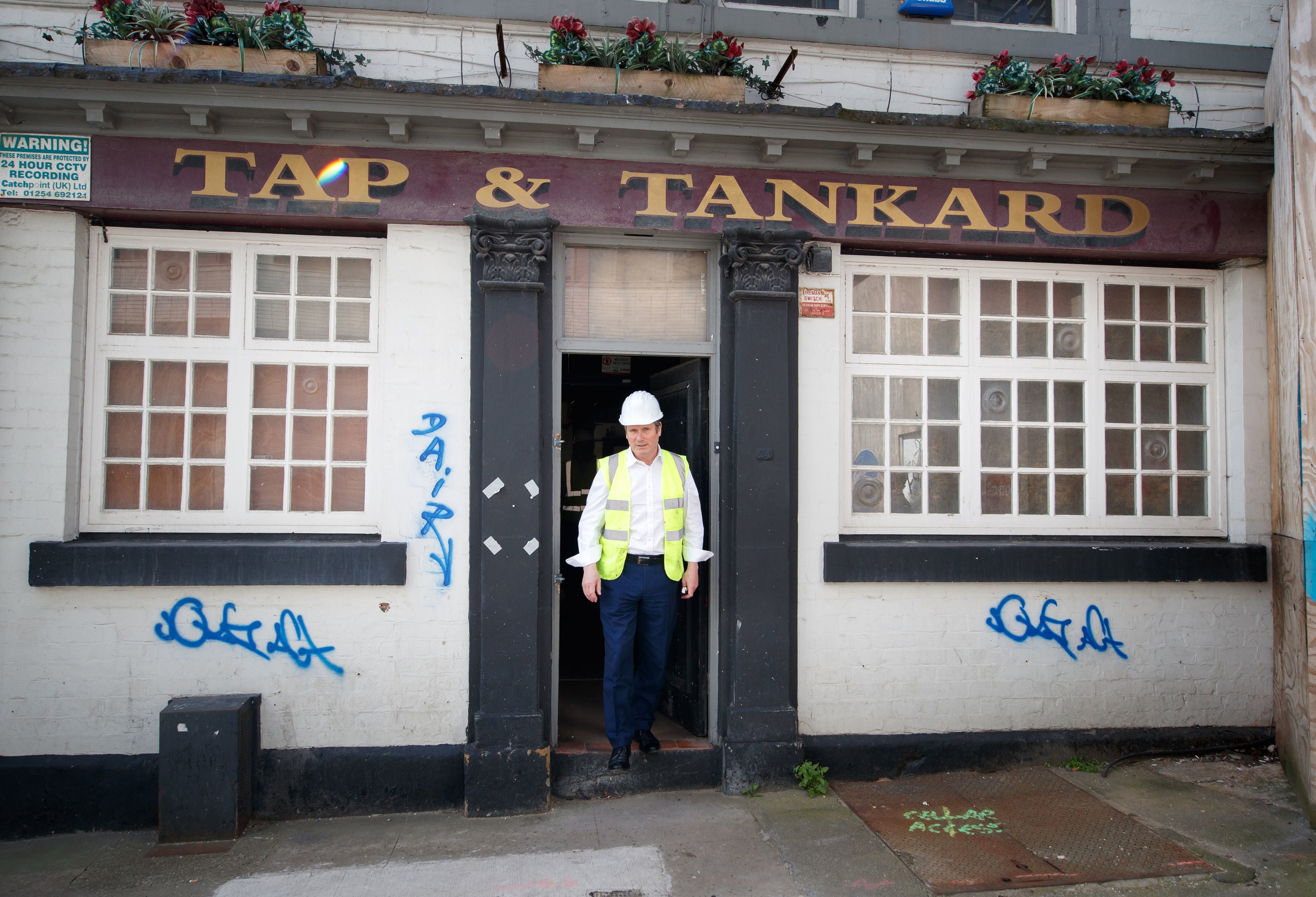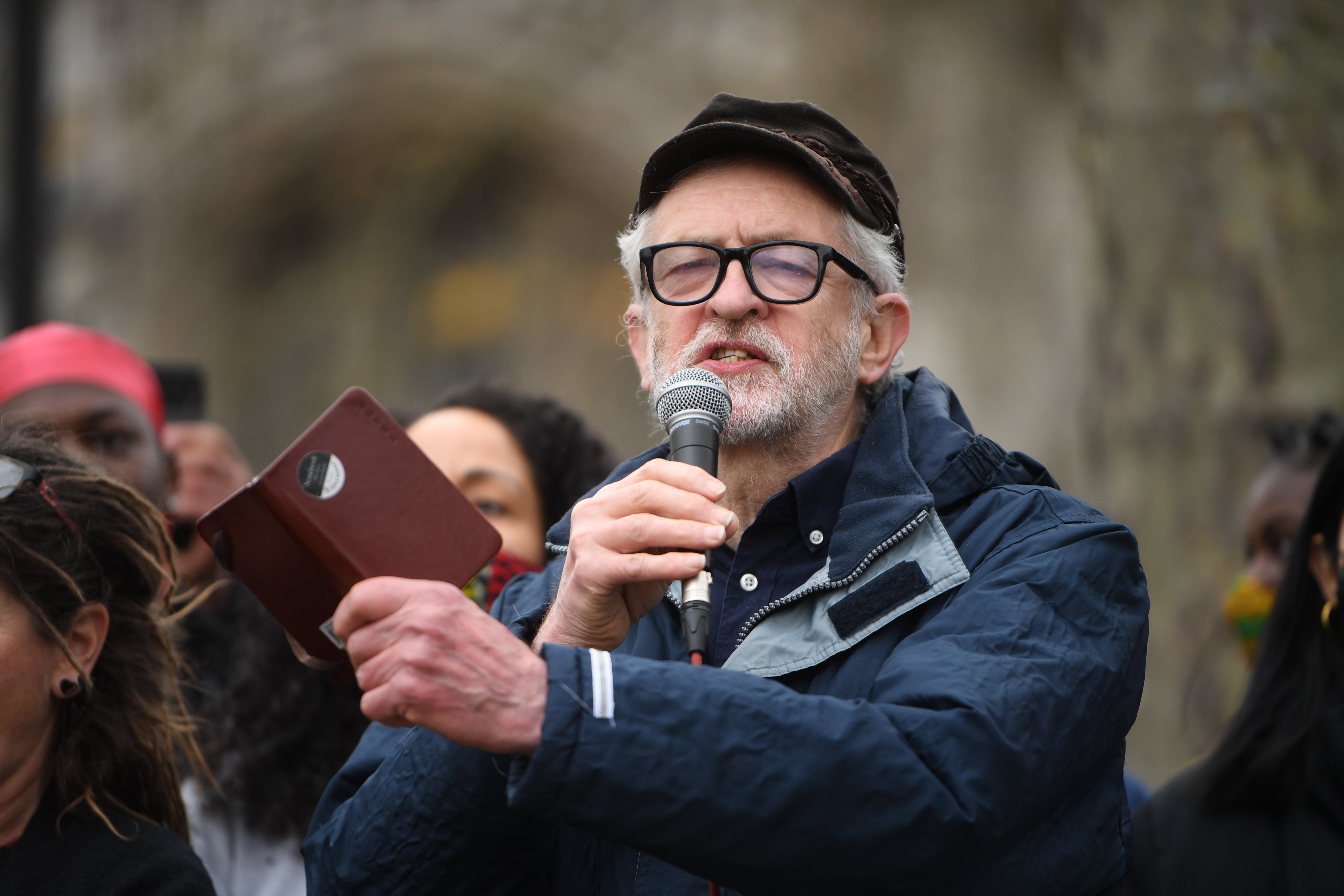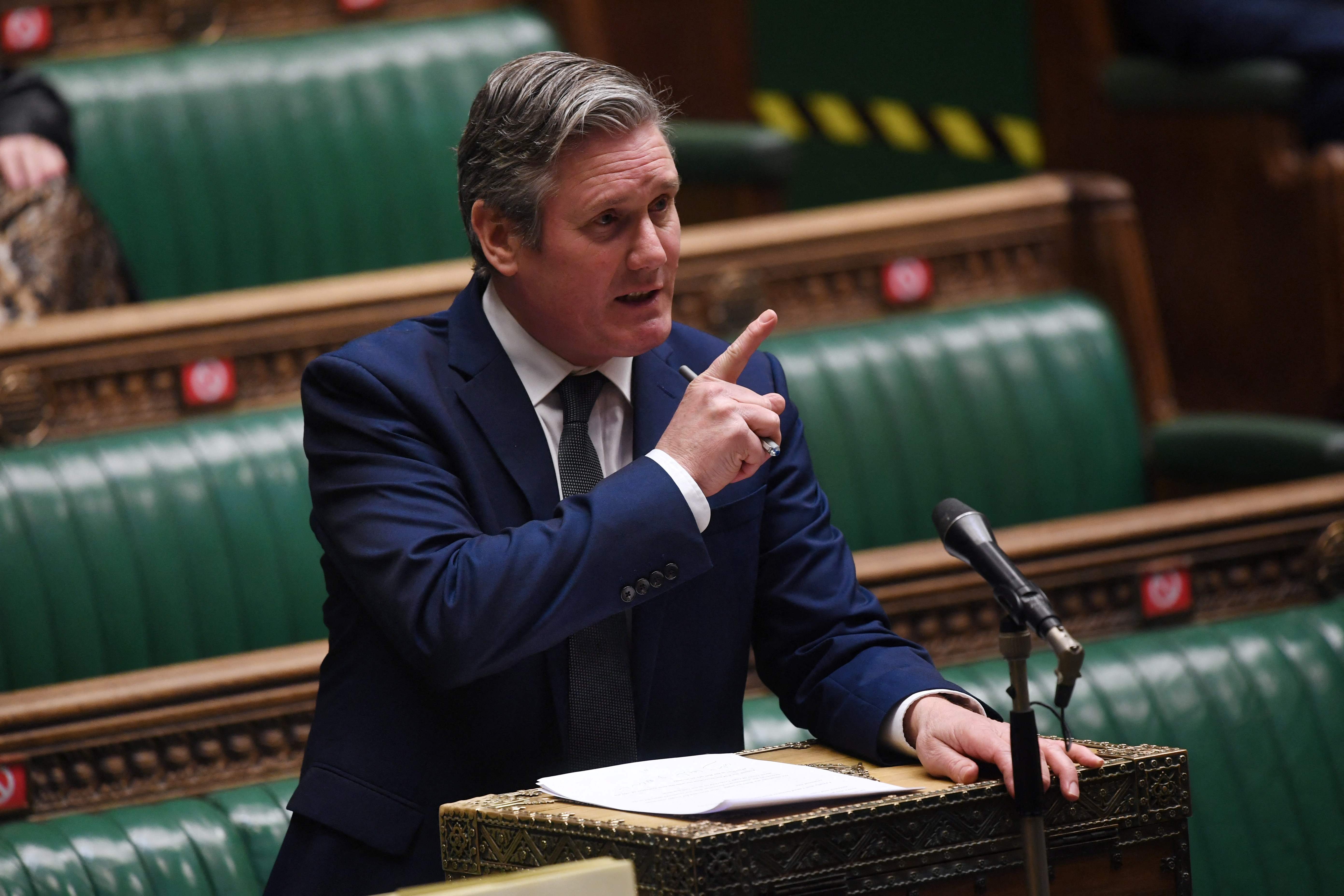Can Keir Starmer still revive Labour?
The leader has been in charge for a year, but is struggling to set out how he will beat the Tories. Sean O’Grady looks at how these first 12 months have gone – and what the next steps must be to have any hope of winning an election


For most people, most businesses – even most countries – the past year or so has been a write-off. The usual rules and measures of success and failure simply do not apply. Recent performance, more than ever, is no certain guide to the future. It’s true of politics, too, which should be a source of anxiety as well as comfort for Sir Keir Starmer in his first year as leader of the opposition – a grand position, but nonetheless a miserable job at the best of times. (Notwithstanding Tony Blair now saying that he didn’t enjoy the premiership, he hated being LOTO even more.)
Most of those who have held the post didn’t relish it, and would probably have preferred one week as a junior minister, getting stuff done, to a parliamentary term asking questions, making speeches, and just saying things rather than doing things. Oddly, Starmer’s immediate predecessor, Jeremy Corbyn, was one of the few well-suited to it, apparently living the dream on a constant diet of outrage and protest: one of nature’s oppositionists.
On 4 April 2020, Starmer was elected leader of the Labour Party with an unexpectedly convincing mandate, winning on the first ballot with an absolute majority – 56 per cent of the vote – with Rebecca Long-Bailey, the heir to Corbyn who gave the old boy 10 out of 10 for leadership, scoring an underwhelming 28 per cent, and Lisa Nandy leaving her calling card with 16 per cent.
The result suggested that many of those who had joined Labour during the Corbyn leadership, and supported the Momentum movement, were not, in fact, entryist ideologues uninterested in power, and were actually more disposed towards admitting the flop of the 2019 election campaign, and trying something – someone – different. They seem faster learners than their predecessors from the 1950s and 1980s. A year ago, Starmer, speaking – as so often in the time of lockdown – to a virtually empty room, told the party some home truths: “We’ve got a mountain to climb. But we will climb it, and I will do my utmost to reconnect us across the country, to re-engage with our communities and voters, to establish a coalition across our towns and our cities and our regions, with all creeds and communities, to speak for the whole of the country.”
Perhaps because it might have been just too depressing, Starmer didn’t actually quantify the swing of votes from the Conservatives that Labour would need to take power at the next general election: about 12 per cent. That is on the scale of the historic victories in 1997 and 1945, and rather more than the increase Corbyn managed in the 2017 election, impressive as that was (though the follow-up was weaker).
Frustrated as he must be, Starmer has some successes to his name – some modest progress already in scaling that electoral mountain. First, he has taken control of the party, which is easier said than done. He has installed his first choice, David Evans, as general secretary; has a narrow majority on the National Executive Committee; and the new leader of one of Britain’s biggest unions, Christina McAnea, is supportive. Next year, the McCluskey era at Unite will draw to an end, and Starmer might capture another important centre of internal power. Labour has begun the process of expunging what Starmer calls the “stain” of antisemitism, and has accepted without demur the recommendations of the investigation by the Equalities and Human Rights Commission. Symbolically, and in connection with the antisemitism arguments, Labour suspended Corbyn from the party, and Starmer sacked Long-Bailey from the shadow cabinet. Her departure was unfortunate for the left, because it thereby lost what had passed for its figurehead.
Starmer was obliged, at first, to have Long-Bailey in his team, but otherwise could cast his front bench as he pleased, and in a more balanced way than under Corbyn – or, indeed, during the earlier New Labour ascendancy. Jon Ashworth and a reborn Ed Miliband have been the stars, Nick Thomas-Symonds and Lisa Nandy quieter successes, and David Lammy and Rachel Reeves have also been putting up more of a fight than Labour used to over Brexit and the justice system. Of course the shadow chancellor, Anneliese Dodds, is a bit of a disappointment, but what was she supposed to do in the face of Rishi Sunak’s £300bn-plus spend-and-borrow splurge and his nationalisation of the workforce? It isn’t at all clear.
This Tory chancellor has turned to war socialism, and borrowed more than any Labour chancellor in history. It is difficult for Dodds to do much else than just keep saying “More, please”, and quibble about the self-employed. Given her role as deputy leader, Angela Rayner might have been expected to make more of an impact, beyond calling some obscure Tory MP “scum”. Andy Burnham, as the trouble-making mayor of Greater Manchester, has been more of an electoral asset than most of Starmer’s Westminster colleagues – or indeed than Sadiq Khan, who nonetheless faces little risk of losing London. One small mystery is why Mark Drakeford is facing such a struggle to keep Labour in first place in Wales (compared with how his counterpart Nicola Sturgeon has put herself so advantageously front and centre in Edinburgh).

Despite the complaints and grumbling from the dispossessed left, Starmer has faced little effective internal resistance, and has held on to most of the record party membership accrued during the Corbyn years (losing about 10 per cent, which pushes the total below the half-million mark). If, a year ago, you had predicted that Starmer would see Corbyn virtually thrown out of the party and Long-Bailey shoved into irrelevance, you’d have been mocked for your sycophancy.
None of that party-management business has mattered much to the electorate in the middle of a pandemic, but Starmer has made progress with the voters nonetheless. How much is due to him, and how much to the bumbling crassness emanating from No 10, is debatable. The fact remains that a calamitous poll deficit against the Tories was turned around by Starmer within months, and this was certainly not inevitable. During the worst of the government’s failings and the Dominic Cummings affair last year, Starmer made the political weather, and saw his own personal ratings soaring past those of Boris Johnson, dragging Labour along in their wake. Since then, though, Cummings has gone and the vaccines have arrived, and the Labour and Starmer leads have slipped back. The real test is to imagine where Labour might now be under Corbyn or Long-Bailey, or – heaven help us – Richard Burgon. it is not self-evident that Labour would be carrying all before it and luxuriating in double-digit polling leads, as some claim.
The broader truth of the politics of this pandemic is that the British public has been surprisingly willing to give ministers the benefit of the doubt, taking the view that they have been trying jolly hard and doing their best in an unprecedented plague that has defeated most governments in the western world. Johnson’s unfair jibe that Starmer is “Captain Hindsight” carries some force. Many voters think that opposition politicians and journalists asking critical questions in the Downing Street press conferences are just sniping and griping, and playing “gotcha” games against cabinet ministers who seem to them, the voters, to be as bewildered as they are about what to do. The public seems to take the view that Beth Rigby, Laura Kuenssberg and Robert Peston wouldn’t be great at running the NHS either. That is missing the point rather, but explains a lot about why this government, and every other except Donald Trump’s, is still in office.
During the height of the crisis, Johnson, Matt Hancock and Gavin Williamson were always urging their Labour counterparts to join them in praising successes and supporting frontline workers and the “national effort” against Covid, rather than – supposedly – obstructing it, undermining it, and (it was implied) sabotaging it. It was a wartime-style invitation to abandon traditional parliamentary debate and scrutiny, and there were even hints, as things started to spiral downwards, that Johnson might like to put together a national cross-party government of unity incorporating Starmer. To do so would, of course, have neutered the opposition and eliminated scrutiny. Labour would have been suffocated just as surely as the Liberal Democrats were before, in the coalition, and Starmer was wise to avoid it, or anything approaching it.
Starmer was also right to point out, presciently, that lockdowns were being imposed too late and relaxed too early. He instinctively exploited Tory divisions on free school meals (hijacking the Marcus Rashford campaign) and on the 1 per cent NHS pay rise, and is now doing so on the subject of “vaccine passports”. The fact that Labour isn’t 10 or 20 points ahead in the polls merely reflects the manner in which voters are more inclined to rally round a leader, even an idiotic one, at a time of national struggle. There were certainly moments when Johnson’s leadership was in some jeopardy, though, and Starmer deserves credit for his “forensic” assaults on Johnson in the Commons. Conservative MPs cannot have liked watching their man, underprepared and bleary-eyed, being humiliated, week in week out, at PMQs. Starmer’s approach to Johnson, as if he was still a lawyer trying to advise a particularly dim juvenile delinquent, was honed in this crisis, and promises much for when politics returns to normal and the public returns to judging the prime minister on more conventional grounds.

What will those grounds be? If Johnson has his way they will be all about values and “patriotism” – what have come to be called the “culture wars”. Starmer has had difficulties with these. He still has to live down willingly sitting in Corbyn’s shadow cabinet, as Johnson constantly reminds him, with its profligacy, impossible promises and unilateralism. The trivial business of Starmer planting a union flag behind him has attracted ridicule from all sides, and his stance on the Black Lives Matter protests, opposing disorder and the trashing of public monuments, has also gone down badly in sections of his own party. Yet as a former director of public prosecutions, he could hardly himself trash the law; and why shouldn’t he wave the flag? The danger, plain to see, is that Johnson succeeds in smearing him as some sort of lefty lawyer – unwilling to prosecute paedophiles and terrorists, soft on “illegal” migration, and contemptuous of Britain’s history and traditions. If not, and Starmer tilts to the right, then he splits his party and is attacked from the left, thus substantiating Johnson’s warnings about Labour extremism. Virtually every piece of legislation put forward by the Johnson administration contains trick clauses designed to trap Labour in yet another cultural conundrum, as with the recent crime and police bill.
Labour’s policy on the EU – rejoin or not? – also provides plenty of future material for Johnson’s brand of low politics. So, as we shall see in the coming months, will the union with Scotland, and the question of whether Starmer would gift Nicola Sturgeon her second independence referendum (and Starmer is all over the place on this).
After all, Johnson did very nicely out of the earlier culture wars over Brexit and their widening out in the election of 2019, not to mention the rows since about race and identity, about the “woke mob”, “cancel culture”, free speech – even Meghan Markle. Johnson knows how well these conflicts can play with stereotypical “working class” voters concentrated in the ex-red-wall constituencies of the north and the midlands, who readily responded to his claims that they were being neglected by some “Islingtonian” liberal elite, and now look forward to the great “levelling up”. They have not yet noticed that whatever levelling up materialises, it will be founded entirely on borrowed money, and the bills will be coming in long after Johnson has left office and is levelling up his personal finances. Their disillusion is almost preordained, but it doesn’t mean they’ll come back to Labour.
If history is much of a guide, the pandemic, as all-consuming as it is today, will probably not figure much in the next election. Nor will the performance of the leader of the opposition during it. On balance, that is probably good news for Starmer, simply because the vaccination programme is now giving such a boost to the government and to Johnson, and that too will fade as the traumas – and more recent triumphs – of the Covid campaign pass into memory. Let’s look back to see how quickly things can be forgotten. Relatively early in their time as leaders of the opposition, two very different figures, Hugh Gaitskell and Michael Foot, were faced with patriotic surges caused by two small wars that provoked big crises – Suez (1956) and the Falklands (1982). Both Labour leaders had to balance supporting the troops and criticising the government’s management of the crisis. Both, like Starmer, actually started by supporting the Tory governments’ actions before turning more critical. Suez was a terminal debacle for the then premier Anthony Eden, while the “spirit of the South Atlantic” helped salvage Margaret Thatcher’s leadership.
Neither mattered much in the general elections of 1959 and 1983 respectively, which were won, by landslides, on the economy. It seems unlikely that even the 150,000 dead from Covid – one of the worst tolls in the world – will drive that much of the vote in the next general election. Even if the voters look back and judge Johnson harshly, it would not be rational of them to judge a government’s overall competence on the management of a pandemic that might not recur for another century. It will be the economy, and the distractions of the culture wars, that will determine whether Labour can win a historic victory next time. The huge round of elections on 6 May, some postponed from the first lockdown, will be the biggest test of opinion since the debacle of the 2019 general election, but in the shadow of Covid it might not tell us that much about the politics of the future. The exception will be Scotland, where the independence issue is already eclipsing coronavirus in the TV debates.
Which brings us back to the Labour Party, and how it can regain the trust of the electorate between now and the general election. Or how Starmer might lead it into such a position. It is easier said than done. There is a toxic legacy, whatever affection Corbyn inspired among the loyalists. There remains a problem, predating Corbyn, with Labour’s weakness in Scotland – without whose votes, realistically, Starmer will never get to No 10. The success of another new Labour leader, Anas Sarwar, an ally of Starmer, in scaling that range of even taller munros, is almost as vital to Labour’s revival as how Starmer himself gets on. Labour will need to demonstrate, by word, deed, and force of the personality of its leading members, that it can be trusted to run the economy; to deliver as well as promise better public services, moderate taxes, higher wages and more jobs; and to be patriotic and stand up for Britain while it is at it. It is a hazardous exercise because any decent ideas will be swiftly snaffled by Johnson, who cares little for ideology or consistency. Starmer has barely got to base camp.
Join our commenting forum
Join thought-provoking conversations, follow other Independent readers and see their replies
Comments